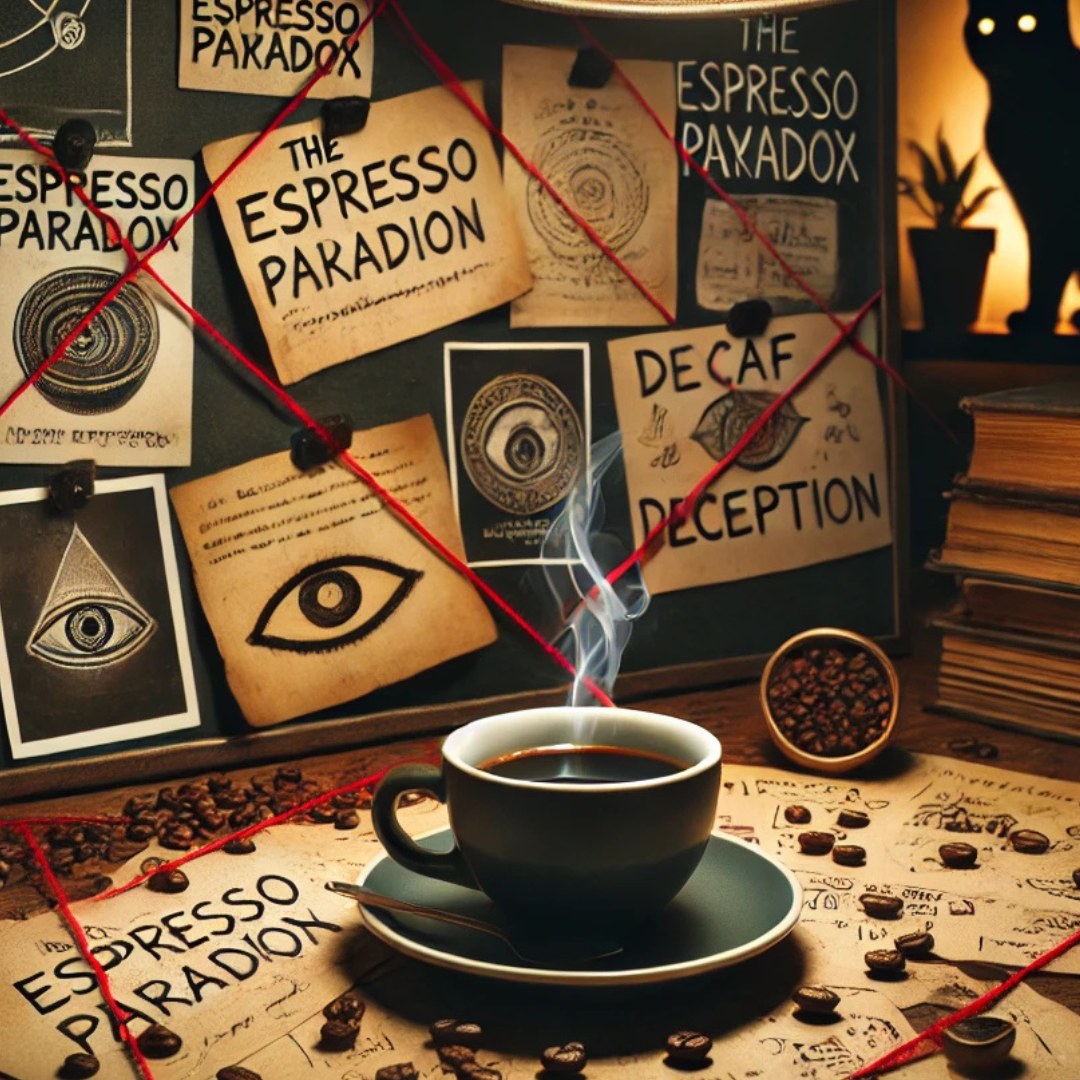Coffee Conspiracies: The Wildest Myths and Legends About Coffee
/Coffee Conspiracies: The Wildest Myths and Legends About Coffee
Coffee has been fueling conversations, revolutions, and morning routines for centuries. But did you know it has also brewed its fair share of wild conspiracies? From old wives’ tales to internet-fueled theories, coffee has been at the center of some truly bizarre claims. Today, we’re spilling the beans on the strangest coffee-related conspiracies floating around.
1. Coffee Was Once Considered Satanic
Back in the 16th century, some religious leaders in the Ottoman Empire and Europe believed coffee was “the Devil’s Drink.” Its stimulating effects were thought to be a form of sorcery, leading to attempts to ban it. Even Pope Clement VIII was asked to condemn coffee—but after taking a sip, he declared it too delicious to be the work of the devil. Thanks, Pope! This fear of coffee led to riots and underground coffee houses, where people would secretly gather to discuss politics and philosophy over a cup of forbidden brew. Today, coffee is embraced by nearly every culture, proving that its supposed dark origins were nothing more than a misunderstood love for caffeine.
2. Instant Coffee Contains Secret Additives for Addiction
Ever heard the claim that instant coffee companies lace their products with addictive substances beyond caffeine? Some conspiracy theorists believe manufacturers sneak in chemicals to keep consumers hooked. While caffeine itself is naturally habit-forming, no hidden ingredients are making you crave that instant cup—just good ol’ caffeine and a love for convenience. The idea of corporate coffee overlords manipulating taste buds sounds like a dystopian thriller, but in reality, instant coffee’s simplicity and accessibility are what keep people coming back for more.
3. Coffee Stunts Your Growth
Many of us grew up hearing that coffee would make us shorter. This myth likely originated from outdated studies linking caffeine consumption to decreased calcium absorption. However, modern research has debunked this theory—so sip away without fear of shrinking! In fact, coffee may even have health benefits, such as reducing the risk of certain diseases and providing a much-needed mental boost. So next time someone warns you about height loss, just remind them that even NBA players enjoy a cup of coffee now and then.
4. Big Coffee is Hiding the ‘Perfect’ Brew Formula
Some people believe that coffee giants like Starbucks and Nespresso have discovered the secret to the perfect cup of coffee but refuse to share it with the world. The truth? Coffee perfection is subjective, and the best cup is the one you love the most—whether it’s from a specialty café or your favorite home brewing method. While these companies do invest in research and development to enhance flavor and consistency, there’s no single “perfect” formula that they’re keeping locked away. The beauty of coffee lies in its variety and the endless possibilities for customization.
5. The Coffee Crop Crisis Cover-Up
There’s a theory that coffee shortages are artificially manufactured to drive up prices. While it’s true that climate change, supply chain issues, and labor shortages impact coffee production, there’s no secret organization hoarding beans to create artificial scarcity—just the realities of global agriculture. Coffee farmers face real challenges, from unpredictable weather patterns to fluctuating market prices, and these struggles are far more complex than a simple conspiracy. Supporting sustainable coffee brands and fair trade practices is one way to ensure that coffee remains available for generations to come.
6. Decaf Coffee is a Lie
Some hardcore coffee drinkers claim that decaf coffee still contains enough caffeine to keep you wired. While it’s true that decaf isn’t 100% caffeine-free (most decaf still has about 2-5 mg of caffeine per cup), it’s a far cry from the 95 mg in a regular brew. If you feel a buzz after decaf, it’s likely the placebo effect—or just your sheer enthusiasm for coffee. Decaffeination is a meticulous process that removes the majority of caffeine while preserving the flavor, so while it may not be completely caffeine-free, it’s definitely a viable option for those looking to cut back.
7. Coffee Can Read Your Mind
Okay, maybe coffee itself isn’t sentient (yet), but some people believe baristas at major coffee chains can predict your order based on behavioral data and past purchases. While loyalty programs and algorithms do track preferences, your morning barista isn’t a psychic—they’re just really good at remembering your go-to drink. The more you frequent a coffee shop, the more likely the staff will recognize your habits, but there’s no grand coffee conspiracy at play. Just friendly baristas who appreciate your business and your caffeine-fueled consistency!
Sip With Confidence
From diabolical brews to corporate cover-ups, coffee has sparked some seriously wild theories. But at the end of the day, coffee remains one of the most beloved (and least suspicious) beverages in the world. So keep sipping, keep questioning, and most importantly—keep enjoying every cup!
Got a favorite coffee myth or conspiracy? Drop by Rise Cafe Denver and let’s chat over a fresh brew!


